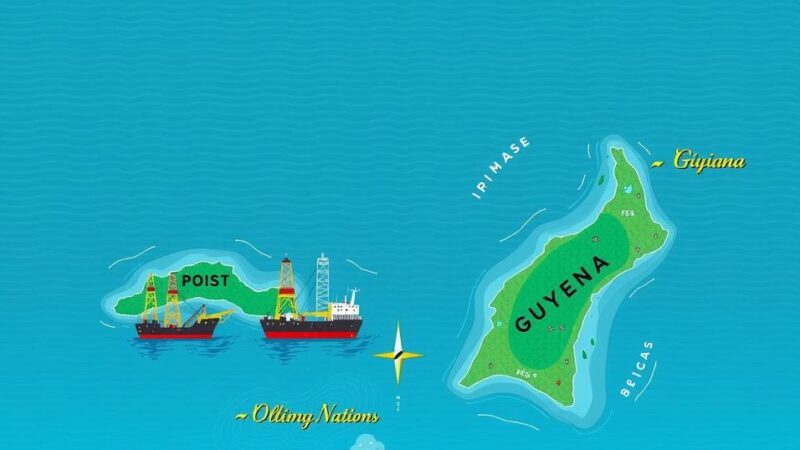Political unrest in Zimbabwe due to calls for President Mnangagwa’s resignation may lead to increased migration to South Africa. Zimbabweans, despite high unemployment and poverty, still view South Africa as a land of opportunity. The instability could strain South African resources as political developments unfold within Zimbabwe’s ruling party.
Political instability in Zimbabwe, largely influenced by calls for President Emmerson Mnangagwa to resign from his own Zanu-PF party, could pose significant challenges for South Africa. While Zimbabwe faces higher levels of unemployment and poverty than South Africa, many Zimbabweans still view South Africa as an opportunity-rich destination. Recent statistics indicate that deportations from South Africa have tripled since 2020/21, yet this has not deterred those suffering in Zimbabwe from seeking employment in South Africa.
Sothini Ncube, a vendor from Bulawayo, exemplifies the plight of many Zimbabweans. Despite holding an honours degree in psychology, Ncube struggles to find suitable employment due to the scarcity of opportunities and the dismal state of public amenities in his home country. He stated, “Why should I stay home when it’s clear 2025 and beyond will be a waste for me? I would rather go back to SA and take up menial jobs.” Ncube further lamented the lack of necessary medical supplies, emphasizing his willingness to endure disparagement in South Africa for better healthcare access.
Recent actions by South Africa, including a nationwide operation to address illegal immigration, may clash with the growing uncertainty and desperation among Zimbabweans considering moving to South Africa for better prospects. Economist Stevenson Dlamini has expressed concern that Zimbabwe’s political turmoil could strain South Africa’s public services, as the country has historically faced challenges managing unregulated inflows of Zimbabwean migrants. He urged that a politically unstable Zimbabwe directly impacts South Africa’s business environment.
The potential for political change in Zimbabwe emerged during a party conference last October, where divisions within Zanu-PF became visible. A faction supporting Mnangagwa proposed extending his term by two years or altering the constitution to facilitate a third term until 2034. While Mnangagwa maintains he will adhere to his constitutional limits, he has not discouraged demands for constitutional amendments from his supporters.
Blessed Geza, previously of Zanu-PF’s central committee, has emerged as a figure opposing Mnangagwa’s extended rule. Geza, now in hiding, has called for protests against the presidency, advocating for the deputy, Constantino Chiwenga, to succeed him. Conflicts have arisen within the party regarding leadership ambitions, with party spokesperson Christopher Mutsvangwa denigrating Chiwenga’s capabilities for presidency.
In response to the political climate, Mnangagwa has swiftly altered key positions within Zimbabwe’s security apparatus, attempting to secure his regime before potential protests planned for March. Changes in leadership have included the retirement of high-ranking officials in the police and military, suggesting Mnangagwa’s strategy to consolidate power and prevent any unconstitutional challenges to his authority.
In summary, the political uncertainty in Zimbabwe, fueled by internal dissent against President Mnangagwa, is poised to affect South Africa significantly, particularly through increased migration. Despite the challenges faced within South Africa, many Zimbabweans view it as their best option due to dire conditions at home. The developments within Zimbabwe’s political context, coupled with significant shifts in key security positions, paint a picture of an unstable future that may further complicate bilateral relations and public service demands in South Africa.
Original Source: www.newzimbabwe.com






